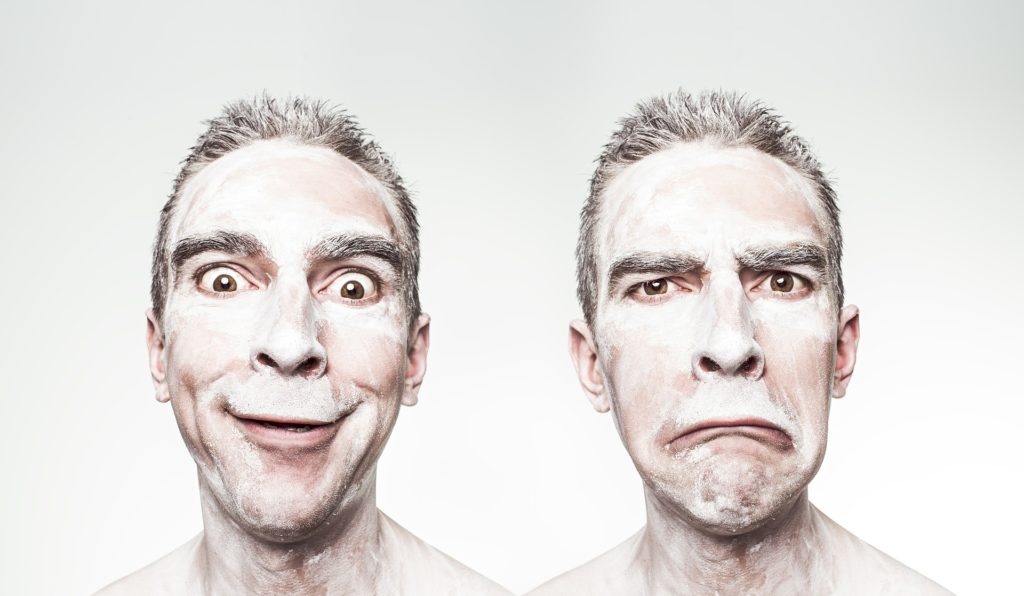Ask 100 random people about what they seek in life and you are bound to get a variety of answers like more money, better relationships, more time, peace and more. Dig a little deeper and ask what they want more money or better relationships for, and you will reach the same ultimate objective – Happiness!
You might find that people use different words when describing this ultimate objective of life, but it is likely to be one of the main purposes of many in this otherwise depressed state of the society. Wellness, peace, exuberance, joy, and satisfaction are just some of the terms that are used. While there are subtle nuances to these words, they primarily point to a ‘happy’ state of mind.
Collective Happiness

Even though happiness is extremely sought after by a large majority of humans, society, governments, institutions and corporations have done little to further this aspect of human existence. Governments do not measure the success of their nation based on the SHS (Subjective Happiness Score). They look at measures like GDP. Educational institutions do not create their curriculum to produce happy children and therefore happy adults. They design a curriculum that will produce adults that can add to the GDP of the nation. Corporates certainly do not base their achievements on how happy the employees are but focus on the bottom-line. Even specific initiatives taken to better the state of the poor, are intended to take the overall numbers of the nation to a higher level than to increase the overall well-being of the people.
The United States of America came close and declared ‘the pursuit of happiness’ as one of the unalienable human rights in 1776. However, Thomas Jefferson was careful about the wording of the fundamental right. The state did not promise happiness to all its citizens. It only promised that all individuals have a right to pursue their own happiness and that the state would not hinder that pursuit. So, America is today known for allowing people to follow their dream; whatever it may be. It does not ensure that every citizen of the state is happy. That is not their job!
Whose responsibility is to make us happy? The answer is simple and each of us knows it. Us!
Happiness Over the Years
Happiness is defined as a state of well-being by the psychologists. It is a concept that is difficult to define in more concrete terms but let’s give it a try. What is happiness?
For those living a few hundred years from now, happiness would have meant the absence of famine, war and disease. These are no longer relevant to us today since mankind has conquered a large part of these issues. Famine and disease are not understood to be acts of God that need to be endured. We have conquered many diseases and even eradicated some. Today, when there is a new disease that springs its ugly head, men do not make sacrifices to the Gods, but scientists get their heads down and sleeves up, to study the virus, bacteria, or the human body and set out to search for means of curing the problem. We have done it before and surely, we can do it again!
Happiness means vacations, money, expensive clothes and jewelry, stable relationships and more for most people today. Yet, if we compare developing nations like Peru, Philippines and Haiti with highly developed and richer nations like France, Japan, and Switzerland, the suicide rates are much lower in these developing countries. There were less suicides per 100,000 people in South Korea when it was governed by an autocratic rule than today when it is a free nation with liberal laws.
United States saw a huge increase in the economic parameters post World War II. In less than half a century it became a super power with high standards of living and goods that were easily available to the common man. Cars, dishwashers, vacuum cleaners, televisions and computers made life easier and better for everyone. Did it also increase the happiness index of the country? The same goes for Japan.
Happiness, therefore cannot be defined by the absence of pain. It is a concept that is far more positive and is not limited to just survival.
What Does Happiness Depend on

Happiness is determined by two aspects – one biological and the other psychological. These two aspects determine the extent to which an individual can be happy. On the biological level, our happiness is determined by hormones like serotonin and dopamine. Everyone has his own biochemistry, but these can be controlled and enhanced to some extent. You can increase the level of these hormones in your body with lifestyle changes. Including some form of exercise in life is one of the major ways in which people can increase their happiness levels.
On the psychological front, happiness is determined by expectations. It is not the mere availability of riches, material goods, better relationships and achievements that lead to happiness but the balance of these with the expectations that you have. This is exactly why some who ‘have’ or ‘possess’ less than others are still happier. Riches do not make you happy but getting a lottery of more than what you expected does. An easy going partner does not make you happy if you romanticized about a ‘Hollywood style’ marriage. But if you expected to be abused, you will surely consider yourself lucky! The formula is simple – expect less to be happy; expect more to be miserable!
Take for example a situation where a student work hard to achieve 99% in his exams and lands up with 95%. He expected to get 99% and ended up with less and is therefore unhappy about it. On the other hand, there is this student who expected to fail and landed a percentage of 75. The later student is likely to be happy while the other, despite the much higher percentage, is likely to be sad and miserable.
A constant strife to increase ‘happy hormones’ and low expectations is the key to being happy! This, however, is not as easy a task as it seems.
In addition to that, this approach leads to other questions:
- Should we then expect the least from ourselves and our situation to remain happy?
- Should we not strive to make our circumstances and the world better?
- Should we just be happy and satisfied with what we have, and will that not lead to a scenario of underachievement or no achievement at all?
Points to ponder over and a topic for the next blog! What do you think?


I agree with you wholeheartedly about expectations. We overlook the role of what we expected in so many of our contents and discontents. We ask, are you happy? We could ask, without being dismissive, what were your expectations?
But I don’t think deliberately trying to set our expectations low (especially in this culture of “the new and the better”) will work–we will know it’s a trick to try to fool ourselves. We may be better off with the message, stay open for anything, all lives have ups and downs, joy and sorrow, count on it.
Or the Hindus have a different way to put it. In the Bhagavad Gita, a god says to a mortal:
“He who is the same to foe and friend, and also in honor and dishonor, who is the same in cold and heat and in pleasure and pain,…that man is dear to me.” Americans may read this as simply about trying to be totally indifferent, unemotional, to everything. But I read it as, don’t let your life be totally swayed by what goes badly or well, you will get some of both when you least expect them, stay steady, that’s what will be best for your fulfillment.
Brock
The state you refer to that the god (Krishna) described to the mortal (Arjun) is called ‘stitha pragya’.
However, not having expectations does not mean not doing karma (action). Whatever needs to be done in this new and better world should be done. Albeit, with no expectations of outcome.
If that is possible, happiness is right here for the taking. 🙂
Thank you for your comment. Love hearing different points of view on these subjects.